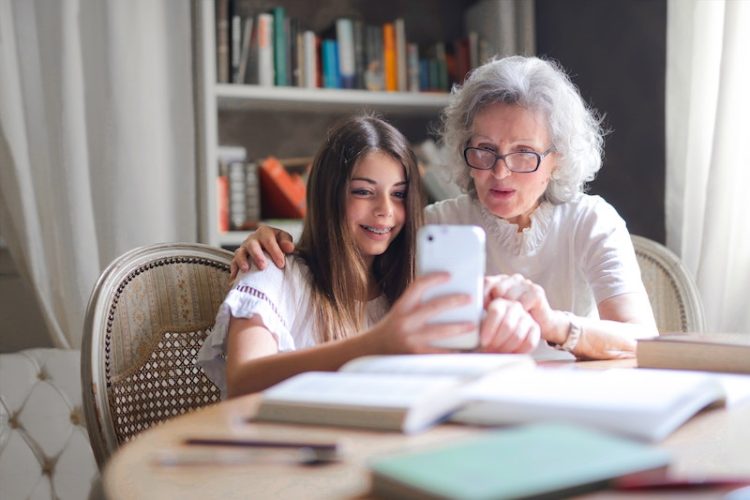We often hear advice and encouragement about the importance of teaching our kids about money. Starting with instilling the savings habit and moving all the way through the smart use (or avoidance) of credit, many of us have both struggled with and enjoyed the opportunities to instill important financial knowledge and habits in our children while they are still under our roof.
But it’s important to remember that later, as grandparents, we can still have an important role in passing along lessons learned about money and finance to an even younger generation. In fact, because many grandparents have a less discipline-based relationship with their grandchildren than they had when they were raising their own offspring, they may have better and less stressful opportunities to talk to grandkids about money basics. Sometimes, kids will listen to their grandparents in a different and more receptive way than they do their parents. This can offer grandparents a perfect chance to get important financial lessons into young, eager minds.
1. Thrift.
Baby Boomers can probably recall their own parents and grandparents talking about the Great Depression and how important it was for people to control expenses and save as much as possible for a rainy day. In our own lifetimes, we’ve experienced financial ups and downs, including the Great Recession that started in 2008 and the current economic uncertainty over Coronavirus.
What experiences can you share with your grandchildren about a time when cutting costs made a big difference in your life? Using ideas that they can understand and relate to, you can offer stories from your own life that they can recall and apply to their own decisions in later years.
2. Saving.
Encouraging young people to save is one of the best and most valuable lessons we can teach. Did you ever take on a paper route in order to save up for a new bike? Did you do odd jobs around the neighborhood in order to pay for week at summer camp? Chances are that your grandkids would love hearing about these experiences, and along the way you can testify about the satisfaction we all feel when we reach an important savings goal that enables us to obtain something we really wanted.
3. Helping others.
We should never forget that having significant financial resources should be accompanied by a sense of responsibility to do what we can to alleviate the needs of those less fortunate. By sharing your stories — either of helping or of being helped — you can help your grandchildren absorb the idea that money is a tool that can be used to make life better, not just for ourselves, but also for others.
Ultimately, it’s important for family stewards, whether grandparents or otherwise, to communicate the message of empowerment. By encouraging basic behaviors like those above, we are teaching our grandchildren that money is a thing that should be used and controlled, not a thing that should control us. When we practice good money habits, we are putting ourselves in charge. When we share these lessons with our grandchildren and the other important people in our lives, we are teaching them how to take charge themselves.
In my financial advising work, I help family stewards and others develop not only investment plans, but also strategies for communicating important financial values. To read my recent blog article on grandparents helping to raise their grandchildren, click here. If you have questions about this or any other topic, please get in touch.
Stay Diversified, Stay YOUR Course!

